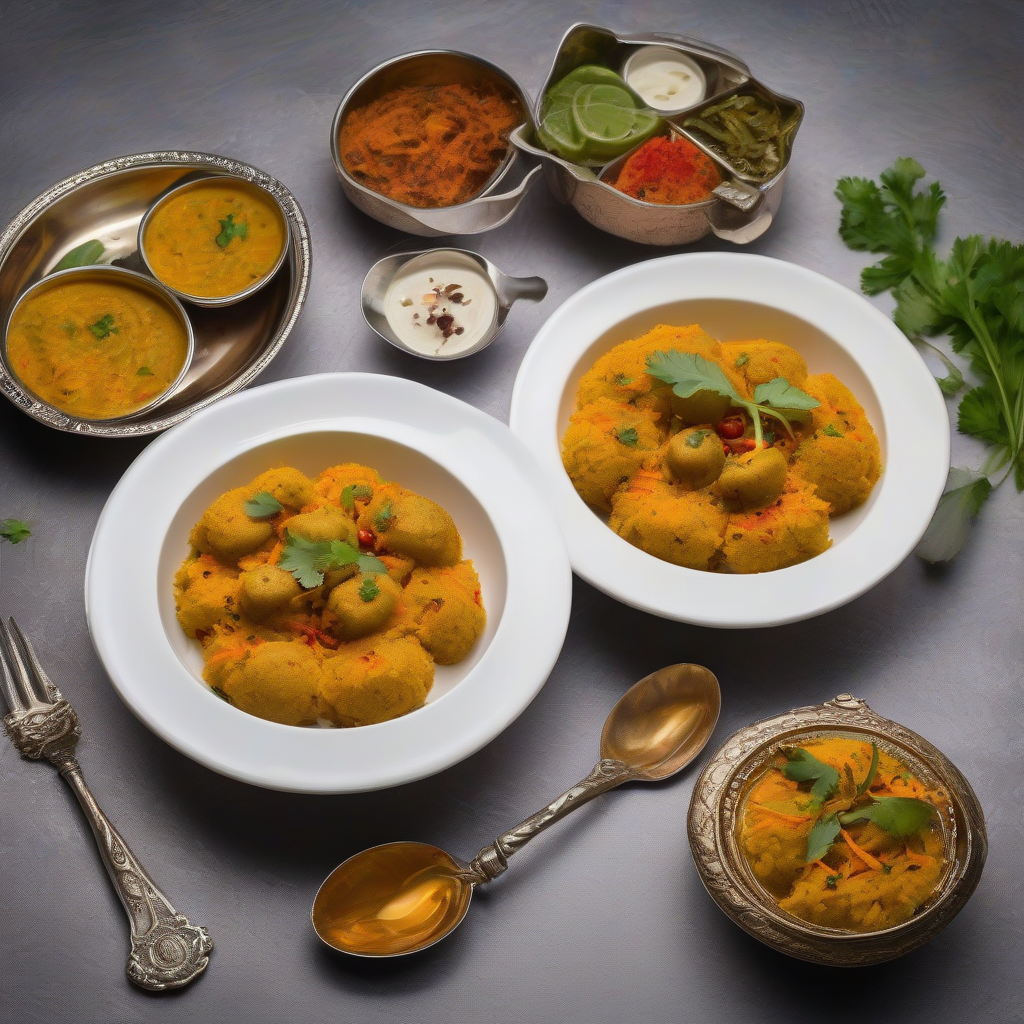Babru Bonanza: Pahadi Pancakes to Warm Your Dil!
Namaste and Sat Sri Akal, food lovers! Chef Curry Do-Pyaza here, back with another recipe that’ll transport you straight to the misty mountains of Himachal Pradesh. Today, we’re diving into the delightful world of Babru, a delicious, deep-fried bread that’s like a warm hug on a cold day.
If you’re from Himachal or have Pahadi friends, you’ve probably heard of it. If you haven’t, buckle up! You are in for a treat!
Occasions for Babru Bliss
Babru is more than just food; it’s a tradition! It’s often made during festive occasions like Lohri (the winter harvest festival) and other local fairs and celebrations. It’s also a common snack enjoyed during the chilly winter months in Himachal. Imagine biting into a crispy, golden Babru while gazing at snow-capped peaks. Bliss, isn’t it?
A Little History Lesson
Babru has a humble history, originating in the rural kitchens of Himachal Pradesh. It was born out of the need to use leftover dough and lentils in a creative and delicious way. The recipe has been passed down through generations, with each family adding their own special touch. It’s a testament to the resourcefulness and culinary wisdom of the Pahadi people.
Get Ready to Cook!
Preparation Time: 20 minutes (plus soaking time)
Cooking Time: 25 minutes
Ingredients You’ll Need:
- Maida (All-purpose flour): 2 cups
- Urad Dal (Split black gram lentils): 1 cup
- Jeera (Cumin seeds): 1 teaspoon
- Hing (Asafoetida): A pinch
- Dhaniya Powder (Coriander powder): 1 teaspoon
- Lal Mirch Powder (Red chili powder): ½ teaspoon (adjust to your spice level)
- Amchur Powder (Dry mango powder): ½ teaspoon
- Salt to taste
- Oil for deep frying
Let’s Get Cooking!
- Soak the Dal: Wash the urad dal thoroughly and soak it in water for at least 4-5 hours, or preferably overnight. This makes it easier to grind.
- Grind the Dal: Drain the soaked dal and grind it into a smooth paste using a little water. Be careful not to add too much water, or the batter will become runny.
- Spice it Up: In a bowl, mix the ground dal paste with jeera, hing, dhaniya powder, lal mirch powder, amchur powder, and salt. Mix well.
- Make the Dough: Add the maida to the dal mixture and knead it into a soft, pliable dough. Add a little water if needed. The dough should not be too sticky or too dry.
- Rest the Dough: Cover the dough with a damp cloth and let it rest for 15-20 minutes. This allows the gluten to relax, resulting in softer Babrus.
- Roll and Fry: Divide the dough into small, equal-sized balls. Roll each ball into a slightly thick, circular disc (like a small roti).
- Heat the Oil: Heat oil in a deep frying pan or kadai over medium heat. Make sure the oil is hot enough; otherwise, the Babrus will absorb too much oil.
- Fry to Golden Perfection: Gently slide the rolled Babrus into the hot oil, a few at a time. Fry them until they are golden brown and puffed up, flipping occasionally to ensure even cooking.
- Drain and Serve: Remove the fried Babrus from the oil and drain them on a paper towel to remove excess oil.
Chef Curry’s Tips for Babru Brilliance
- Don’t over-knead the dough: Over-kneading can make the Babrus tough.
- Maintain the oil temperature: The oil should be hot but not smoking. If it’s too hot, the Babrus will burn on the outside and remain uncooked inside.
- Spice it your way: Feel free to adjust the spices to your liking. You can add garam masala or other spices for a more complex flavor.
- Fresh is best: Babrus taste best when served hot and fresh.
Cooking Options for the Modern Kitchen
- Gas Stove/Induction Stove: The traditional method, as described above, works perfectly on both gas and induction stoves.
- Air Fryer: For a healthier version, you can air fry the Babrus. Preheat your air fryer to 350°F (175°C) and air fry for 8-10 minutes, flipping halfway through, until golden brown. Lightly brush with oil for best results.
- Oven: You can also bake the Babrus in a preheated oven at 375°F (190°C) for 12-15 minutes, flipping halfway through.
- Pressure Cooker: Not ideal for cooking Babru directly, but you can use a pressure cooker to quickly cook the urad dal if you’re short on time.
Nutritional Nuggets
Babru is a good source of carbohydrates and protein (from the urad dal). However, keep in mind that it is deep-fried, so enjoy it in moderation as part of a balanced diet.
Serving Suggestions
Babru is incredibly versatile! You can serve it:
- With aloo sabzi (potato curry)
- With chutney (mint or tamarind)
- With a dollop of yogurt
- As a snack with a cup of hot chai
Your Turn to Shine!
Now it’s your turn to try this amazing recipe! I promise, the aroma of freshly fried Babrus will fill your home with warmth and happiness. Make it for your family, your friends, or just for yourself!
Don’t be shy – dive into the kitchen and create your own Babru Bonanza! Share this recipe with your loved ones and spread the joy of Pahadi cuisine. Happy cooking!
